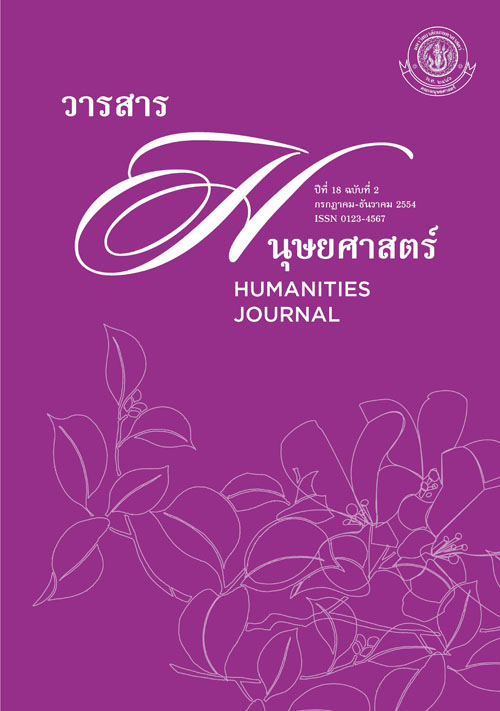To Be Possessed or to Possess: An Adoption of Lanna Myth as Female Weapon in Sroisugandha
Main Article Content
Abstract
In Beyond Good and Evil, Nietzsche mentioned that the great art of woman is
“the lie.” To free herself from men’s dominion, woman may employ her device—illusion. As men are believed to be the creatures of rationale, woman stirs and undermines their sphere with irrationality. In Sroisugandha, a Northern local color novel written by Mala Khamchan, Faikham, a desperate orphan, is adopted as a minor wife by a Landlord who is physically
and mentally vulgar. Secretly invited by a sitar player who falls in love with her, she runs away with him into the jungle. There, they come across a fearless villager and a love triangle forms. Throughout the story, readers observe Faikham’s distressful life struggling in the conventional society of men. Experiencing the trauma of rape, brutality and oppression,
Faikham’s psychiatric disorder is gradually exposed. The narrator claims that, with her mental instability, Faikham becomes the medium of Princess Sroi, the ghost in a local legend. However, we can read that it is not the ghost who possesses Faikham, it is Faikham herself who possesses the ghost. She adopts superstitious supremacy and manipulates men into believing what she says. After being possessed (as the narrator indicates), Faikham derives
power to overcome her troubles. Men are afraid of her status and forced to follow her will.


